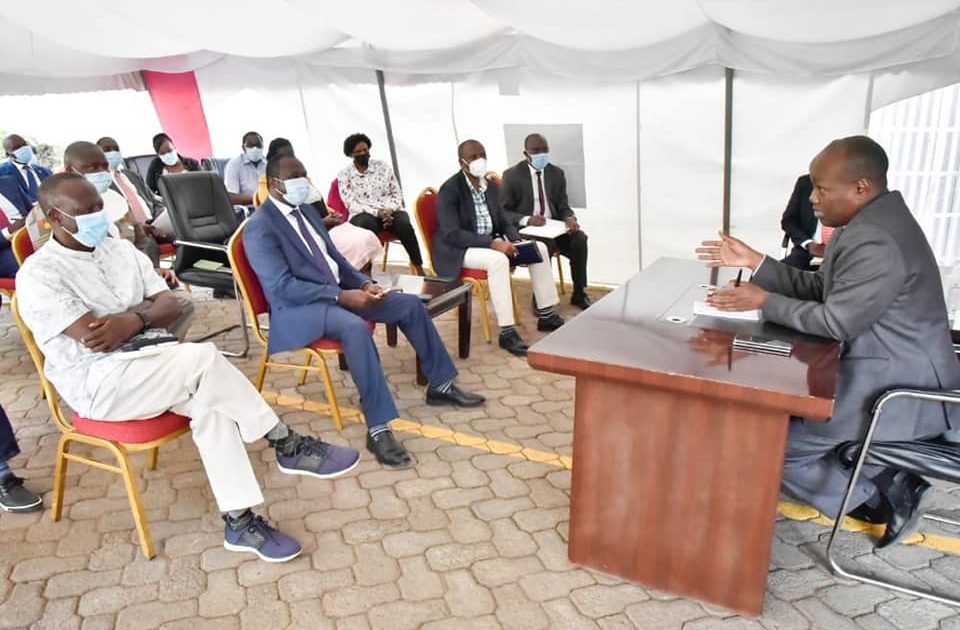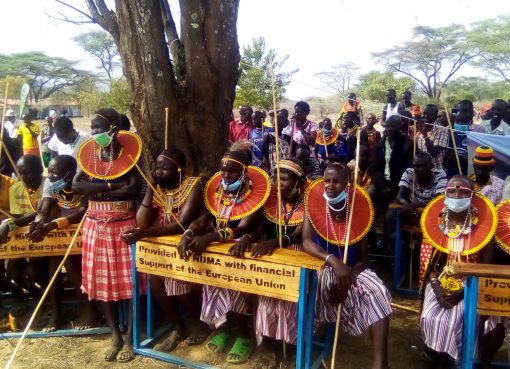Over 1,000 Small and Medium Enterprises (SMEs) and Micro, Small and Medium Enterprises (MSMEs) are set to benefit from an ultra-modern laboratory, calibration and testing facility that the Kenya Bureau of Standards (KEBs) is planning to set up in Nakuru County.
KEBs’ Chief Executive Officer Lieutenant Colonel (Retired) Bernard Njiraini said the facility will reduce turnaround time for testing and associated costs as samples will be tested locally instead of being ferried to Nairobi.
While speaking during a meeting with Governor Lee Kinyanjui Lt Col (Rtd) Njiraini who was accompanied by Chairman to KEBs’ Board of Directors, Engineer Bernard Ngore stated that with the premises, the Rift Valley region will have goods and services that meet the global set standards.
“As part of advocacy and capacity building efforts, KEBs will also use the proposed facility to train small and medium-sized enterprises (SMEs) on standards and certification, to increase their compliance levels and enhance chances of getting their products certified upon submission of samples.
Our plans are to have the premises equipped with four laboratories including Food and Agriculture, Microbiology, Biochemistry, and Instrumentation,” observed the CEO.
The meeting was also attended by County Executive Committee Member for Trade Raymond Komen, County Attorney Caleb Nyamwange and members of the National Standard Council.
Lt Col (Rtd) Njiraini noted that acquisition of modern equipment, training of standards staff, review of the Standards Act, and development of the National Quality Policy has increased effectiveness of KEBs test results, leading to Kenyan products being assured of meeting market requirements before they are exported. Interception of Kenyan products he added had also reduced, enabling market access for products.
The proposed laboratories are expected to offer testing, metrology, and calibration services to the industries in Rift Valley region including textiles, construction, dairy water purification and bottling, tea factories, grains and cereals, sugar, animal feeds, fertilizers and the hospitality sector among others.
Others are calibration of road construction equipment for road contractors as well as precision equipment in the industry and scientific institutions as well as quality control and product certification in the water packaging and food industries.
Lt Col (Rtd) Njiraini affirmed that KEBs was committed to ensuring high quality of products and services in all sectors of the economy for the realization of Vision 2030.
Governor Kinyanjui said the facility will hasten issuance of Standardization Mark to Small and Medium Enterprises (SMEs) and Micro, Small and Medium Enterprises (MSMEs), within the devolved unit and over 14 other counties in the region.
He lauded KEBs for setting up a web-store enabling certified businesses to purchase and print the standards online, as opposed to waiting for hard copies of the stickers, a process that previously took several weeks based on demand.
“There is a need to nurture SMEs and those in the informal sector to improve market access in the region and help them grow their businesses. Bringing KEBs services closer to the people will double and eventually triple the number of certified SMEs and MSMEs products in local, regional and international markets.
Up and coming businesses need all the support from the government, and most of it arises from smoothing the licensing processes, once the facility is operational new SMEs will not have to go through the challenges of getting their products certified in Nairobi,” noted Mr Kinyanjui.
Engineer Ngore said the standards body had acquired state-of-the-art analytical instruments, which have increased KEBs’ efficiency.
The KEBs Board of Directors chairman observed that some of tests which would have initially taken 10 days to perform now take two minutes while KEBS microbiology laboratory was now able to perform up to 25 tests in 120 seconds.
“Our equipment has expanded the scope of testing to cover organic contaminants in drinking water and other toxic elements in food products such as fish and beverages. This is in addition to testing mineral elements in animal feeds, food products and mineral supplements
Our detection limits have also improved as the new equipment are 1000 times more sensitive and have moved our detection ability to ultra-trace levels up from trace level,” Engineer Ngore said.
by Anne Mwale



